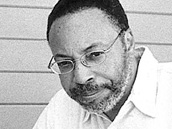Elizabeth Bishop: Nova Scotia’s “Home-Made†Poet
by Sandra Barry
Halifax, NS: Nimbus, 2011
122 pp. $16
In Elizabeth Bishop: Nova Scotia’s “Home-Made†Poet, Halifax poet and scholar Sandra Barry reclaims Pulitzer Prize-winning, U.S.-born poet Elizabeth Bishop (1911-79) as Nova Scotia’s “unofficial†poet-laureate. Indeed, Bishop’s formative seasons were spent there, in Great Village, and are recalled evocatively, lovingly, in several of Bishop’s nostalgic, mature poems and memoir-based stories. In her last decade, after a failed romance in Brazil, but while teaching at Harvard University, Bishop returned frequently to Nova Scotia, and, in May 1979, half a year before she died, she received an honorary doctorate from Dalhousie University.
In her chatty, breezy, picture-packed rendition of Bishop’s life, Barry (who has devoted two decades to researching Bishop’s Nova Scotian roots), sets out the facts of Bishop’s bio – the premature death of her father, her mother’s self-committal to the Nova Scotia mental asylum, Bishop’s New England and Nova Scotian education, her travels, her small but exquisite canon, the poet’s profound but closeted Lesbianism, and the seeming suicide of her Brazilian lover – as proper touchstones.
Yet, given that Bishop’s life was defined by the deaths of parents, grandparents, other beloved relatives, mentors, and her Brazilian partner, the touchstones are practically tombstones. Barry seeks here to resurrect the prime inspirations for Bishop’s art, and argues that the few years of her upbringing in Great Village, and the lore, arts, and acts of her maternal relatives there, especially, defined the poet that Bishop became.
The bio begins with Barry conjuring up Bishop at her typewriter in 1952: “Smoke from her cigarette wreaths her head. The ice in the gin and tonic she sips has long since melted. The words tumble out, ‘A scream, the echo of a scream, hangs over that Nova Scotian village….†It is a Gothic – or film-noir – moment: The revelation of a female ghost – like Daphne Du Maurier’s Rebecca or Margaret Atwood’s Susanna Moodie. Surely Bishop haunts Barry as much her own locked-away mother haunted Bishop. But the American poet is also only a spectral presence in Canadian letters, a fact that Barry wishes to amend.
To domesticate Bishop, to claim her as a homespun Nova Scotian, Bishop is, for Barry, “Elizabeth,†which is how the poet is addressed here, as if she were a close friend, confidante, or relative. The intent is to personalize the poet, but the tone seems like treacle: “Our sense of ourselves emerges from everyday experiences…, and, as Elizabeth says …, our own dreams, memories, imaginations – and from art.†A split with a girlfriend is justified this way: “Severing from Suzanne was necessary….†This Dr. Phil-ism rings false. The same is true of this cliché: “Elizabeth was … desperate to keep her emotional train from derailing and putting her own life in jeopardy.â€
Too, on occasion, Barry’s judgment is exaggerated or wrong: A voyage to Newfoundland is cast as “Elizabeth’s first real trip off the continent,†a notion that violates geography. Barry is an excellent scholar, and this book is chock-full of findings (such as the note that Bishop misheard “Muir†as “Manureâ€). But the folksy approach renders the text a kind of rustic, tourist guide produced by an enthusiast.
But Barry is a poet, and frequently turns in sentences of pith and power: “By the early eighteenth century, the Bulmers ploughed the fields they once had ruled.†Later, we read that Bishop’s “temperament made what is often a passing phase of youthful experimenting into a permanent condition: alcoholism.†Bishop’s South American love is nicely described: “a vibrant, restless, beautiful woman with an underlying, progressive, medical condition.â€
A crucial insight is that, while the United States has every right to claim Bishop as a native daughter, “Canada and Brazil can also lay strong claims to Elizabeth Bishop, who was one of the few truly Pan-American poets of the twentieth century.â€
However, the Canadian and Brazilian “claims have been slower to realize.â€Â True: nations tend to resist claiming non-citizens – unless they take out citizenship. Barry may want to document now Bishop’s engagements with (Atlantic) Canadian writers.





No Comments so far ↓
There are no comments yet...Kick things off by filling out the form below.